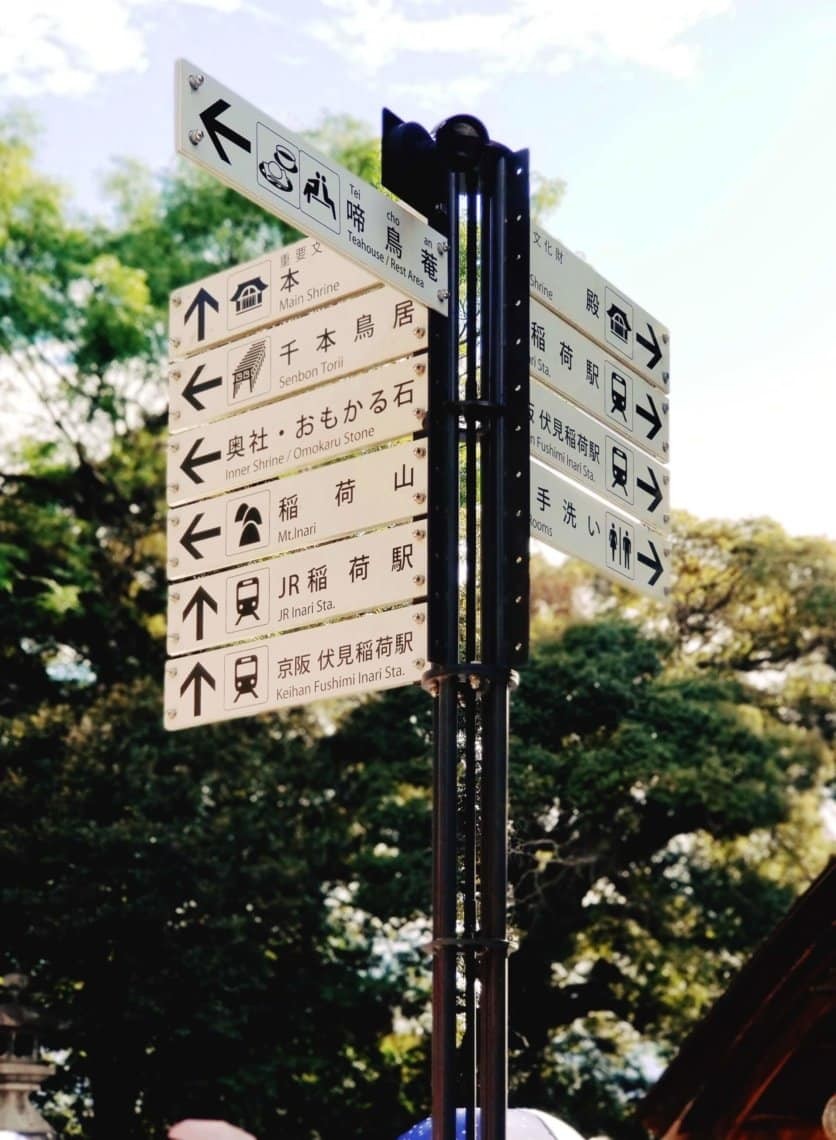Are you planning a trip to Tokyo and wondering, Do I Need To Learn Japanese To Visit Tokyo? At LEARNS.EDU.VN, we believe a little effort goes a long way; learning a few basic Japanese phrases can significantly enhance your travel experience, foster deeper connections with locals, and unlock a more immersive understanding of this vibrant culture, even though it’s not strictly necessary for a fulfilling trip. Consider exploring language learning apps, phrasebooks, or online courses to prepare for your journey, making your interactions smoother and more rewarding.
1. The Truth About Visiting Tokyo Without Japanese
It’s absolutely possible to enjoy Tokyo without speaking Japanese, which aligns with the comprehensive educational resources offered by LEARNS.EDU.VN. Many signs in tourist areas are in English, and you’ll often find English-speaking staff at hotels, train stations, and major attractions. Don’t hesitate to immerse yourself in our diverse range of language courses and cultural insights for a richer, more meaningful experience.
2. Why Learning Basic Japanese Enhances Your Trip
2.1 Deeper Cultural Immersion
Knowing even a few Japanese phrases opens doors to more authentic interactions. Locals appreciate the effort, making them more welcoming and helpful. This aligns with the principles of LEARNS.EDU.VN, which emphasizes understanding and respecting diverse cultures.
2.2 Enhanced Communication
While many Japanese people know some English, particularly in Tokyo, being able to communicate in Japanese can simplify everyday tasks like ordering food or asking for directions.
2.3 Greater Confidence
Speaking some Japanese can boost your confidence, making you feel more comfortable and independent as you explore Tokyo. This is something LEARNS.EDU.VN aims to instill in all learners.
3. Essential Japanese Phrases for Travelers
Here are some essential Japanese phrases to learn before your trip. Even mastering these can greatly improve your experience.
3.1 Greetings and Basic Expressions
- Konnichiwa (こんにちは) – Hello
- Arigatou Gozaimasu (ありがとうございます) – Thank you (formal)
- Arigatou (ありがとう) – Thank you (informal)
- Sumimasen (すみません) – Excuse me; I’m sorry
- Onegaishimasu (お願いします) – Please
3.2 Asking for Directions
- __ wa doko desu ka? (__はどこですか) – Where is __?
- Eki wa doko desu ka? (駅はどこですか) – Where is the station?
- Toire wa doko desu ka? (トイレはどこですか) – Where is the restroom?
3.3 Ordering Food
- __ o kudasai (__をください) – I would like __, please.
- Biiru o kudasai (ビールをください) – I would like a beer, please.
- Itadakimasu (いただきます) – Said before a meal (similar to “bon appétit”)
- Gochisousama deshita (ごちそうさまでした) – Said after a meal to express thanks
3.4 Transportation
- Kippu (切符) – Ticket
- Shinkansen (新幹線) – Bullet train
- Tomete kudasai (止めてください) – Stop, please (in a taxi)
3.5 Time-Related Phrases
- Ima nanji desu ka? (今何時ですか) – What time is it now?
- Nanji ni? (何時に?) – At what time?
- Asa (朝) – Morning
- Kyou (今日) – Today
- Ashita (明日) – Tomorrow
4. Practical Scenarios and How Japanese Helps
Let’s explore how knowing basic Japanese can be beneficial in various everyday scenarios.
4.1 At a Restaurant
Imagine you’re in a small, local ramen shop where the menu is only in Japanese. Knowing a few basic phrases can make a big difference.
- Scenario: You want to order a specific type of ramen.
- How Japanese Helps: You can say, “[Ramen name] o kudasai,” which means, “I would like [ramen name], please.”
- Additional Tips: Learn the names of popular ramen dishes and toppings. Use “Omakase de” (お任せで) to let the chef choose for you!
4.2 Navigating Public Transportation
Tokyo’s train system is efficient but can be overwhelming. Japanese phrases can help you navigate it more smoothly.
- Scenario: You need to find the correct platform for your train.
- How Japanese Helps: Ask, “[Station name] wa doko desu ka?” which means, “Where is [station name]?”
- Additional Tips: Learn the names of major stations and use a Japan Rail Pass for cost-effective travel.
4.3 Shopping
Whether you’re buying souvenirs or daily necessities, basic Japanese can enhance your shopping experience.
- Scenario: You want to ask the price of an item.
- How Japanese Helps: Say, “Kore wa ikura desu ka?” which means, “How much is this?”
- Additional Tips: Carry a small calculator to help with price negotiations in local markets.
4.4 Staying at a Hotel
Communicating with hotel staff becomes easier with a few key phrases.
- Scenario: You need extra towels.
- How Japanese Helps: Say, “Tauru o kudasai,” which means, “Towels, please.”
- Additional Tips: Learn how to say “air conditioning” (eakon) if you need help adjusting the room temperature.
4.5 In a Taxi
Taxis are readily available in Tokyo, and knowing basic phrases can ensure you reach your destination smoothly.
- Scenario: You need to tell the driver to stop at a specific location.
- How Japanese Helps: Say, “[Location name] de tomete kudasai,” which means, “Please stop at [location name].”
- Additional Tips: Have the address of your destination written in Japanese to show the driver.
4.6 Emergency Situations
While we hope you won’t need them, knowing a few phrases for emergencies can be invaluable.
- Scenario: You need to ask for help.
- How Japanese Helps: Say, “Tasukete!” which means, “Help!”
- Additional Tips: Keep a list of emergency numbers handy, including the police (110) and ambulance (119).
5. Resources for Learning Basic Japanese
LEARNS.EDU.VN recommends these resources to help you start learning Japanese:
| Resource | Description |
|---|---|
| Duolingo | A free, gamified app that makes learning fun and easy. Focuses on vocabulary and basic grammar. |
| Memrise | Uses flashcards and spaced repetition to help you memorize words and phrases effectively. Offers courses tailored for travel. |
| Rosetta Stone | A comprehensive language learning program that uses immersion techniques. Offers a structured approach to learning Japanese. |
| Tae Kim’s Guide to Learning Japanese | A free online textbook that covers grammar in detail. Ideal for learners who want a deeper understanding of the language. |
| YouTube Channels | Channels like “JapanesePod101” and “Learn Japanese with JapanesePod101” offer video lessons on grammar, vocabulary, and culture. |
| Japanese for Busy People | A popular textbook for beginners. Focuses on practical communication skills. |
| Genki | A widely used textbook series for college-level Japanese courses. Offers a thorough introduction to the language. |
| Online Tutors | Platforms like iTalki and Verbling connect you with native Japanese speakers for personalized lessons. |
| Phrasebooks | Lonely Planet Japanese Phrasebook & Dictionary and Tuttle Japanese for Travelers are excellent resources for quick reference. |
| NHK World Radio Japan | Offers free Japanese lessons online. Focuses on practical conversation skills. |
| WaniKani | A radical-based approach to learning kanji. Helps you memorize characters through mnemonics and spaced repetition. |
| Anki | A flashcard program that uses spaced repetition. You can create your own flashcards or download pre-made decks. |




6. Cultural Considerations
Understanding Japanese culture can enhance your interactions and show respect.
6.1 Bowing
Bowing is a common greeting and shows respect. A slight nod is usually sufficient for tourists.
6.2 Using “San,” “Sama,” and “Sensei”
- San (さん) is a general honorific suffix used after names (e.g., Tanaka-san).
- Sama (様) is a more formal version of “san,” used for customers or people of high status.
- Sensei (先生) is used for teachers, doctors, and other professionals.
6.3 Removing Shoes
In many homes and traditional establishments, you’ll be asked to remove your shoes.
6.4 Gift-Giving
If you’re invited to someone’s home, bringing a small gift is customary.
6.5 Chopstick Etiquette
Avoid sticking chopsticks upright in rice, as this resembles a funeral ritual.
7. Apps and Tools for On-the-Go Learning
These apps and tools can help you learn Japanese while traveling:
| App/Tool | Description |
|---|---|
| Google Translate | Useful for quick translations and understanding signs. Can translate text from images. |
| Yomiwa | A Japanese OCR (Optical Character Recognition) app. Allows you to scan Japanese text with your camera and get instant translations. |
| Jisho.org | An online Japanese dictionary. Offers detailed definitions and example sentences. |
| AnkiMobile | A mobile version of the Anki flashcard program. Allows you to review vocabulary on the go. |
| Tsurukame | A mobile app for WaniKani. Helps you learn kanji while traveling. |
8. Overcoming the Language Barrier in Tokyo
Even without extensive Japanese knowledge, there are strategies to overcome the language barrier.
8.1 Use Translation Apps
Apps like Google Translate can quickly translate phrases and text.
8.2 Carry a Phrasebook
A physical phrasebook is useful when you don’t have internet access.
8.3 Learn Basic Kanji
Knowing a few basic kanji (Chinese characters) can help you understand signs and menus.
8.4 Use Gestures and Pointing
Don’t be afraid to use gestures and point at items to communicate.
8.5 Ask for Help
Japanese people are generally very helpful and willing to assist tourists.
9. A Deeper Dive into Japanese Culture and Language
To truly appreciate Tokyo, consider exploring Japanese culture and language in more depth.
9.1 The Beauty of the Japanese Language
Japanese is a rich and nuanced language with a unique writing system and grammar. Understanding its intricacies can provide a deeper appreciation for Japanese culture.
9.2 Exploring Japanese Art and Literature
From traditional arts like calligraphy and ukiyo-e to modern literature and manga, Japanese culture offers a wealth of artistic expression.
9.3 Visiting Cultural Sites
Exploring temples, shrines, gardens, and museums can provide insights into Japanese history and culture.
9.4 Participating in Cultural Activities
Consider participating in activities like tea ceremonies, calligraphy classes, or cooking classes to immerse yourself in Japanese culture.
10. Integrating Japanese into Your Daily Life
Even after your trip, you can continue learning and practicing Japanese.
10.1 Join a Language Exchange Program
Connect with native Japanese speakers to practice your language skills.
10.2 Watch Japanese Movies and TV Shows
Watching Japanese media can improve your listening comprehension and vocabulary.
10.3 Read Japanese Books and Manga
Reading Japanese literature can enhance your language skills and cultural understanding.
10.4 Use Japanese in Your Hobbies
Incorporate Japanese into your hobbies, such as cooking Japanese recipes or listening to Japanese music.
11. Advanced Japanese Phrases for Seasoned Travelers
For those looking to go beyond the basics, here are some advanced phrases:
- Okagesama de genki desu (おかげさまで元気です) – Thanks to you, I’m doing well.
- Ojama shimasu (お邪魔します) – Excuse me for intruding (said when entering someone’s home).
- Osusume wa nan desu ka? (おすすめは何ですか?) – What do you recommend?
- Moushiwake arimasen (申し訳ありません) – I am terribly sorry.
- Yoroshiku onegaishimasu (よろしくお願いします) – Please treat me well (a versatile phrase used in various situations).
12. Etiquette Tips for Using Japanese Phrases
Knowing when and how to use Japanese phrases is just as important as knowing the phrases themselves.
12.1 Politeness Levels
Japanese has different levels of politeness. Using honorific language shows respect.
12.2 Context Matters
The same phrase can have different meanings depending on the context. Pay attention to the situation.
12.3 Body Language
Nonverbal cues, such as bowing and maintaining eye contact, can enhance your communication.
12.4 Tone of Voice
Using a respectful tone of voice is important in Japanese culture.
12.5 Listening Skills
Pay attention to what others are saying and respond appropriately.
13. Common Mistakes to Avoid
Even with good intentions, travelers sometimes make mistakes when using Japanese phrases. Here are some common pitfalls to avoid:
13.1 Incorrect Pronunciation
Mispronouncing words can lead to misunderstandings. Practice your pronunciation.
13.2 Using Informal Language in Formal Situations
Avoid using casual language with strangers or in formal settings.
13.3 Misusing Honorifics
Using honorifics incorrectly can be disrespectful. Learn the proper usage.
13.4 Overusing “Sumimasen”
While “sumimasen” is useful, overuse can be annoying. Use it appropriately.
13.5 Ignoring Cultural Norms
Failing to respect cultural norms can be offensive. Learn about Japanese culture.
14. The Future of Language Learning in Travel
Technology is making language learning easier and more accessible than ever before.
14.1 AI-Powered Translation
AI-powered translation tools are becoming more accurate and convenient.
14.2 Virtual Reality Language Learning
VR technology offers immersive language learning experiences.
14.3 Personalized Language Learning Apps
Apps are becoming more personalized, adapting to your learning style and goals.
14.4 Real-Time Translation Devices
Devices that translate languages in real-time are becoming more common.
14.5 Language Learning Communities
Online communities connect learners from around the world.
15. Embracing the Journey
Learning a new language is a journey, not a destination. Embrace the process and enjoy the rewards.
15.1 Set Realistic Goals
Start with small, achievable goals.
15.2 Celebrate Your Progress
Acknowledge and celebrate your accomplishments.
15.3 Be Patient with Yourself
Learning a language takes time and effort.
15.4 Find a Learning Buddy
Learning with a friend can make the process more enjoyable.
15.5 Never Stop Learning
Continue learning and practicing your language skills.
16. Do Japanese People Speak English?
While English education is widespread, fluency varies. Most Japanese people know some English, but don’t expect everyone to be fluent.
- Education System: English is taught in schools for at least six years.
- Fluency Levels: Fluency is higher in urban areas and among younger generations.
- Helpfulness: Many Japanese people are willing to try their English, even if they are not fluent.
17. Navigating Tokyo with Limited Japanese
Even with limited Japanese, you can navigate Tokyo effectively.
- English Signage: Major tourist areas have signs in English.
- Tourist Information Centers: These centers provide assistance in English.
- Transportation Apps: Apps like Japan Official Travel App help you navigate public transport.
- Pocket WiFi: Renting a pocket WiFi device ensures you have internet access for translation apps.
- Friendly Locals: Don’t hesitate to ask locals for help.
18. Essential Japanese Words and Phrases
Here’s a list of essential Japanese words and phrases for your trip, compiled by LEARNS.EDU.VN:
| Phrase | Japanese (Romaji) | Japanese (Kanji/Hiragana) | Meaning |
|---|---|---|---|
| Hello | Konnichiwa | こんにちは | Hello |
| Thank you | Arigatou gozaimasu | ありがとうございます | Thank you (formal) |
| Thank you (informal) | Arigatou | ありがとう | Thank you (informal) |
| Excuse me; I’m sorry | Sumimasen | すみません | Excuse me; I’m sorry |
| Please | Onegaishimasu | お願いします | Please |
| Where is __? | __ wa doko desu ka? | __はどこですか | Where is __? |
| Where is the station? | Eki wa doko desu ka? | 駅はどこですか | Where is the station? |
| Where is the restroom? | Toire wa doko desu ka? | トイレはどこですか | Where is the restroom? |
| I would like __, please. | __ o kudasai | __をください | I would like __, please. |
| I would like a beer, please. | Biiru o kudasai | ビールをください | I would like a beer, please. |
| Said before a meal | Itadakimasu | いただきます | Said before a meal |
| Said after a meal | Gochisousama deshita | ごちそうさまでした | Said after a meal |
| Ticket | Kippu | 切符 | Ticket |
| Bullet train | Shinkansen | 新幹線 | Bullet train |
| Stop, please (in a taxi) | Tomete kudasai | 止めてください | Stop, please (in a taxi) |
| What time is it now? | Ima nanji desu ka? | 今何時ですか | What time is it now? |
| At what time? | Nanji ni? | 何時に? | At what time? |
| Morning | Asa | 朝 | Morning |
| Today | Kyou | 今日 | Today |
| Tomorrow | Ashita | 明日 | Tomorrow |
| How much is this? | Kore wa ikura desu ka? | これはいくらですか | How much is this? |
| Help! | Tasukete! | 助けて! | Help! |
19. Food and Drink Phrases
For many travelers, enjoying Japanese cuisine is a top priority. These phrases will enhance your dining experiences.
19.1 Essential Food Phrases
- Oishii (おいしい) – Delicious
- Osusume wa nan desu ka? (おすすめは何ですか?) – What do you recommend?
- Vegetarian desu (ベジタリアンです) – I am vegetarian.
- Konbi ni arimasu ka? (コンビにありますか?) – Do you have this set / combination?
- Sumimasen, kore atatamete kudasai (すみません、これ温めてください) – Excuse me, can you warm this up for me?
19.2 Essential Drink Phrases
- O-mizu kudasai (お水ください) – Water, please
- Biiru kudasai (ビールください) – Beer, please
- Nihonshu kudasai (日本酒ください) – Sake, please
- Atsukan (熱燗) – Hot Sake
- Reishu (冷酒) – Cold Sake
20. Transportation-Related Phrases
Getting around Tokyo is easier with these transportation-related phrases.
20.1 Getting Around
- Chizu wa arimasu ka? (地図はありますか?) – Do you have a map?
- Densha (電車) – Train
- Basu (バス) – Bus
- Takuushi (タクシー) – Taxi
- Massugu itte kudasai (まっすぐ行ってください) – Please go straight
20.2 In a Taxi
- __ made onegaishimasu (__までお願いします) – To __, please
- Hidari ni magatte kudasai (左に曲がってください) – Please turn left
- Migi ni magatte kudasai (右に曲がってください) – Please turn right
FAQ: Visiting Tokyo Without Japanese
1. Is it really possible to enjoy Tokyo without speaking Japanese?
Yes, absolutely! Many signs are in English, and you’ll find English-speaking staff at major tourist spots.
2. Will learning a few basic phrases make a difference?
Definitely. Locals appreciate the effort, and it can enhance your interactions.
3. What are the most essential phrases to learn?
Greetings, thank you, excuse me, and basic phrases for asking directions and ordering food.
4. Are there any apps that can help me translate on the go?
Yes, Google Translate is a great option.
5. How can I ask for directions if I don’t know much Japanese?
Start with “Sumimasen” (excuse me) and then ask “__ wa doko desu ka?” (where is __?).
6. What should I say before and after a meal?
Say “Itadakimasu” before a meal and “Gochisousama deshita” after a meal.
7. How can I express gratitude to someone who helps me?
Say “Arigatou gozaimasu” (thank you) with a slight bow.
8. Is it common to tip in Japan?
No, tipping is not customary in Japan.
9. What should I do if I get lost?
Ask a local for help. Japanese people are usually very willing to assist tourists.
10. How can I learn more about Japanese culture?
Visit temples, shrines, and museums, and participate in cultural activities like tea ceremonies.
Conclusion: Embrace the Adventure
While you don’t need to learn Japanese to visit Tokyo, doing so can significantly enhance your trip. Even a basic understanding of the language opens doors to deeper cultural immersion, smoother communication, and greater confidence. At LEARNS.EDU.VN, we encourage you to embrace the adventure of learning a new language and discovering the wonders of Japanese culture.
Ready to start your language-learning journey? Visit LEARNS.EDU.VN today to explore our wide range of courses and resources. Whether you’re looking to learn basic travel phrases or dive deep into Japanese language and culture, we have something for everyone. Contact us at 123 Education Way, Learnville, CA 90210, United States, or via Whatsapp at +1 555-555-1212. Let learns.edu.vn be your guide to unlocking new worlds through education.
